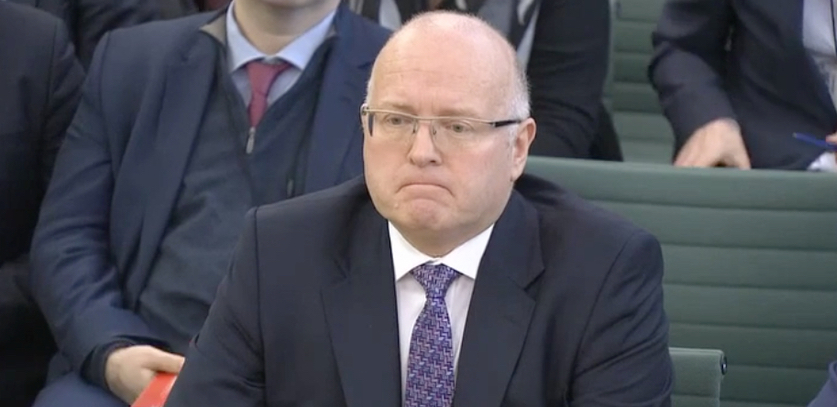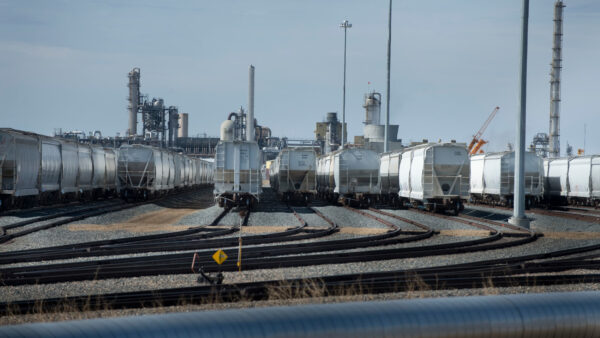Unsatisfied after hours of evidence given by former bosses of collapsed Carillion 11 days ago, investigating MPs have demanded more answers to clear up apparent contradictions.
They have asked former chief executive Richard Howson (pictured) to explain more about the contract in Qatar that left Carillion owed an alleged £200m before its collapse on 15 January, and challenged former chairman Philip Green over whom who he believes is “culpable” for the collapse, if not himself.
They have also written to the chief executive of Qatari developer, Msheireb Properties, asking him to back up any dispute he has with Carillion’s allegations of non-payment.
Interim chief executive Keith Cochrane is being asked to clarify his interaction with investors who were offloading, and even shorting-selling, their shares in Carillion before its collapse.
And MPs have widened the net of their probe to the “litany of organisations” to which Carillion bosses ascribed some role or responsibility in the lead-up to Carillion’s demise.
After four hours of aggressive questioning on 6 February, MPs leading the joint investigating committees called the Carillion bosses “delusional”, and accused them of blaming everyone but themselves for the collapse.
Publishing their fusillade of letters yesterday, the MPs reiterated their dissatisfaction with what they saw as contradictory evidence.
“Everything was hunky dory until it all went suddenly and unforeseeably wrong,” they said, repeating an earlier jibe.
Questions for Howson and Green
Their letter to former chief executive Richard Howson first asks for more detail about the structural beams at Royal Liverpool Hospital, whose design flaws were among the factors blamed for Carillion’s downfall.
It then zeroes in on Qatar, querying the exact amounts owed and the timing of events on the £493m contract on the Msheireb Downtown redevelopment in Doha, a job Carillion won in 2011.
MPs want to know how much Howson was paid for his ongoing work in Qatar after he was sacked as chief executive in July 2017, and whether Carillion bid for any other contracts in the Gulf country.
In their letter to Philip Green MPs press the former chairman on the extent of his own perceived responsibility for the failure, asking: “You told us that you take ‘full responsibility’ but ‘not necessarily culpability’ for the collapse of the company. Who do you regard as culpable?”

Keith Cochrane, who replaced Howson as interim chief executive in July 2017, gives evidence to MPs on 6 February 2018 (From televised proceedings)
Green is asked to name his board’s “three most regrettable decisions” during his tenure, and to explain why the company tended, by his own admission, “to devote insufficient time” to contract negotiations.
MPs also want to know why exactly he was “surprised” by the fast deterioration in the company’s cash flow in September 2017.
What does Msheireb say?
During the gruelling session on 6 February, both Howson and former interim chief executive Keith Cochrane vividly blamed much of Carillion’s troubles on Qatari client Msheireb Properties, whom they said simply refused to pay for work done.
Howson said he “felt like a bailiff” after going to Doha more than 60 times over six years to plead for payment.
But soon afterward Msheireb denied this version of events, accusing the former bosses of misleading MPs. “Despite ongoing project delay, Msheireb Properties continued to pay Carillion,” a spokesperson said, “however, Carillion did not pass these funds on to its supply chain, leaving over 40 subcontractors unpaid.”
Now the MPs want to hear directly from Msheireb Properties. In a letter to acting chief executive Ali Al Kuwari, they invite Msheireb to respond. “If you dispute anything we were told, we would be grateful if you could please set out why and provide supporting documents,” they write.
Widening the net
Further elaborations are also requested from former interim chief executive Keith Cochrane, who was asked to clarify his interaction with the institutional investors who were offloading – and in at least one case, shorting-selling – their shares in Carillion.
Former chief financial officer Zafar Khan is asked to clarify again the terms of his departure, including whether a non-disclosure agreement was attached to it.
Richard Adam, a former finance director, is asked why the “healthy” company he left at the end of 2016 went into compulsory liquidation a year later, and about acquisitions like Alfred McAlpine, which added £650m “goodwill” to Carillion’s books but otherwise held net liabilities of £50m.
The Committee has also written to what it calls “the litany of organisations ascribed some role or responsibility in the events leading to the demise of Carillion by its former directors”.
As well as Msheireb Properties, MPs have questions for McLeod Partnerhips Ltd in relation to the hospital beams, Slaughter and May, Lazard, Morgan Stanley, Aberdeen Road Ltd, The Hospital Co., and Crown Commercial Service.
In select cases MPs asked for responses before the next oral evidence session on 22 February.
On that day, the Work and Pensions-Business, Energy and Industrial Strategy (BEIS) committees will quiz auditor KPMG, Deloitte and the Pensions Regulator.
Meanwhile, the committees have asked the UK’s Federation of Small Business to respond to Carillion directors’s dismissal of the allegation that Carillion were “notorious late payers” who “abused their dominant position” and left suppliers waiting for payment even beyond their extraordinarily long contracted payment terms.
Top image: Former Carillion chief executive Richard Howson giving evidence to a joint committee of UK MPs on 6 February 2018 (From televised proceedings)
Comments
Comments are closed.











MPs demand more answers from Carillion bosses, and from Qatari developer
The responsible Carillion bosses should be imposed with substantial financial penalties from their personal pockets as they are the ones who may have benefitted with hefty bonuses and perks from their decisions and in addition they should also be in prison for having disrupted the lives of so many and thus these bosses should not be free to continue to live in luxury while the victims of their actions and their families may have an uncertain future. [ By TRAINER-AUDITOR]